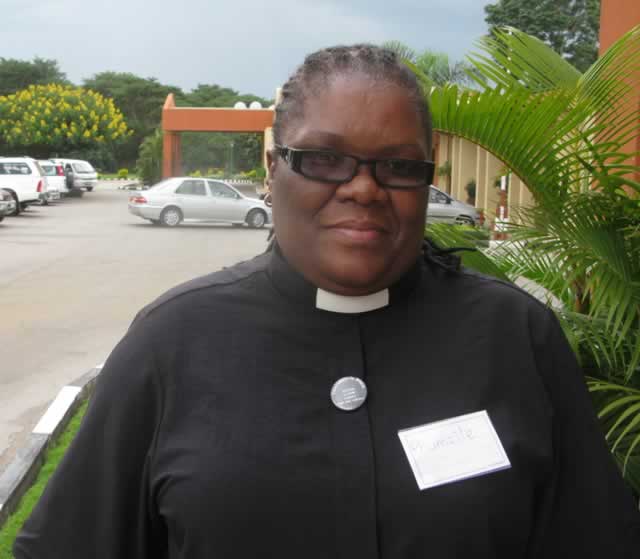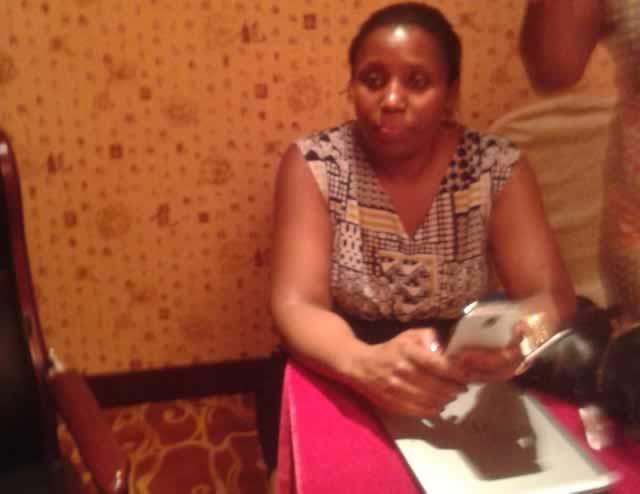The ugly face of child abuse
IT is very disturbing when guardians turn abusers.
The Herald on October 1, 2013 carried a story of an orphaned six-year-old girl who was raped by her uncle who infected her with HIV.
The 39-year-old man, who worked in Borrowdale as a gardener, was sentenced to 20 years in jail after he was convicted of rape.
Little children put their trust in elders who are supposed to protect them and the court was right in sentencing the man to 20 years.
The little girl is traumatised for life and now has to take ARVs for the rest of her life.
The child was treated for sexually transmitted diseases.
Post exposure prophylaxis (PEP) is given to survivors of rape and sexual violence who may have been exposed to HIV infection.
In the minor’s case, trauma is etched in her mind and counselling sessions are in progress.
The MSF-Belgium (Doctors without Borders) opened a clinic at the Edith Opperman Mbare Polyclinic to cater for rape and domestic violence survivors in December 2011.
Project co-ordinator Ms Bianca Tolboom said the clinic which offers free services is open from 7:30am to 4:30pm every day.
“The clinic opens eight hours every day from Monday to Sunday and our staff is available to help survivors even before they have made a police report.
“The clinic offers medication for the prevention of HIV and Aids, sexually transmitted infections, unwanted pregnancies and other medical care needed as a result of rape,” she said.
“Confidential emotional counselling support is provided to help the survivors deal with the traumatic experience and the consequences,” said Ms Tolboom.
The clinic helps in evidence gathering and medical examination for court processes on request. The clinic can also refer to other services like legal or social support.
Rape victims are advised to seek treatment within 72 hours for the most complete care. The clinic caters for all residents even from other suburbs.
Some rape survivors have remained silent for fear of societal stigma. It is not rare to hear people blaming the victim for having been raped. Often you hear people asking what the woman was wearing as this could have lured the man.
Now for the case of the six-year-old minor, what could she have been blamed for?
Utterly nothing, just lust and animal instincts exhibited by the uncle ended up with him being a beast.
Ms Tolboom emphasised the importance of timeously coming to the clinic even before making a police report so that effective medication for PEP is offered.
The clinic then helps the survivor in making a police report, but after making sure that the survivor has got emotional counselling support to be able to stand the legal process.
The usual standard is that when one is raped one ought to make a report within 72 hours of the assault. If one recognises the perpetrator of the offence then the police takes the identity and where the offence was committed.
The police assures the survivor of their safety and the issue will be dealt with professionally.
The police are not judgmental and a docket is opened and the case taken to court. If the case involves a minor it is handled by the Victim Friendly Court.
Ms Tolboom said that PEP is usually effective in the early stages that the rape is committed hence the request that a survivor comes to the clinic in the 72 hours as stipulated. PEP is an anti-retroviral treatment that is used to limit the risk of contracting HIV virus after exposure.
The state and clinics like the MSF Mbare Clinic cover the full cost of PEP.
Ms Tolboom said that a survivor needs to know that it is not their fault that they were raped.
“Prior to having an HIV test done pre-test counselling is a requirement. A rapid HIV test is done and the results come out in less than 15 minutes.
If the results are negative the survivor is informed and post-test counselling provided.
“A second test will be taken after six weeks. If the results show that the survivor is HIV positive, a second rapid test is performed,” she said.
Ms Tolboom said that emergency contraceptive is also given to the survivor within 120 hours of the assault.
“Emergency contraceptive works best if victim presents herself within the 120 hours as required.
The victim is also tested for sexually transmitted diseases and if one was not immunised against hepatitis this is done immediately,” she said.
The clinic offers the services free of charge and is open to anyone calling from any place.
With the rampant cases of rape being reported in the country President Mugabe is right to call for stiffer penalties for the culprits.
He prefers castration for would be rapists.
A rape survivor who can’t be named to protect her identity said that at times she wakes up and relives the brutal act.
“I was gang-raped by three men a decade ago and I am failing to wipe the ugly scenes from my mind. I wake up struggling as I fight off the rapists.
“What makes it worse is that one of the rapists is a neighbour and he served his seven-year sentence and is now out. The thought that he is now free makes me shiver, I am scared he may rape me again,” she said.
I referred the woman to the MSF Mbare Clinic as sexual assault services and counselling are provided long after the offence.
Southern Africa Aids Information Services last year launched a programme for young women which deals specifically with their sexual reproductive health services and rights.
The programme aims to create a visible change in the lives of young women and girls as they take charge of their sexual reproduction health thereby reducing their vulnerability to HIV and gender-based violence.
The primary target group is young women and adolescent girls aged 15 to 24 years.
Secondary target groups are organisations working with young women and girls to address their sexual reproductive health rights in Southern Africa.
Cases of guardians turning on the vulnerable children they are supposed to protect, are on the rise and it is a worrying trend.
Feedback: [email protected]









Comments